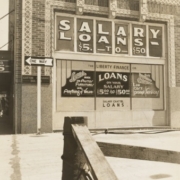Commercial Real Estate Financing: Should I Turn to the Bank or Private Lenders?
Borrowing money from an organization—be it a bank or private hard money lender—comes with its inherent benefits and drawbacks. Like home mortgages, banks and individual lenders actively participate in formulating loans for commercial real estate that are made to business entities (such as developers, corporations, partnerships, trusts, and funds). The loan-to-value ratio for a commercial loan generally ranges between 65 to 80 benchmark.
Allow us to highlight the pros and cons of banks and private lenders, so you know exactly which one to turn to next time you bump into commercial real estate financing:
Banks

Pros
Generally, banks tend to quote the lowest mortgage rates in the real estate market. They are known to make use of the traditional loan qualification guidelines, which are a tried and tested technique of helping reduce a borrower’s risk of and by default. Moreover, these loans can stretch long-term, some spread out to 20 years or more. Additionally, they may offer synergies with other accounts.
Cons
Despite this, banks tend to have some rigid credit score, income verification, and down payment requirements, a phase where several investors face rejection as banks don’t lend on nonconforming product types. Additionally, they have a rather lengthy approval process with loans taking as long as 90 days to be secured and sanctioned. And the high prepayment penalty fee only makes things worse for the borrower in case they face a foreclosure situation.
Private Lenders
Pros
With private lending, there are usually no fixed lending requirements, which means the two parties (i.e., the borrower and the lender) can mutually reach a conclusion regarding the terms and conditions of the loan agreement. This also means more workable workout agreements in case of a foreclosure situation.
Moreover, it’s possible to secure funding in a jiffy since the loan qualification process is a lot less complex or time-consuming than that of a bank. You’ll also be saving the extra buck on fees and closing costs on the loans as they are half to that charged at the bank.
Cons
Loans sanctions by private lenders are short-term; you may expect them to last between a year or two. Additionally, they may also charge a higher interest rate.
At Commercial Private Equity, we’ll cancel out all the points that work against us as private hard money lenders. Our interest rates are delivered at less than 10 percent for all commercial loan programs. We provide commercial real estate loans to businesses of all sizes in Atlanta, GA, given that the minimum loan amount is $500,000. Our firm specializes in commercial hard money, bridge money, construction loans, raw land loans, and workouts loans. Schedule a consultation today to see why we’re everything you’ve been looking for!

















